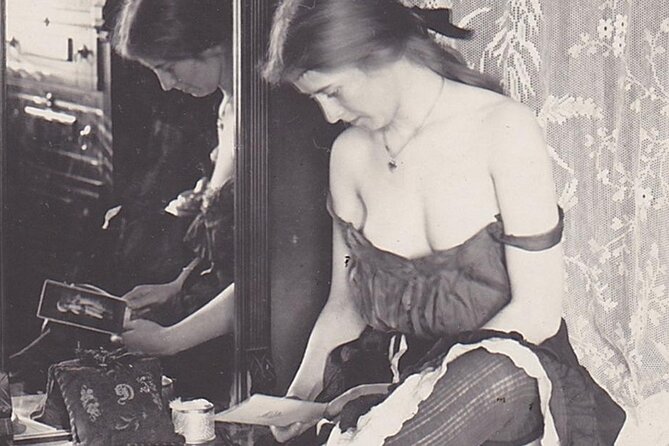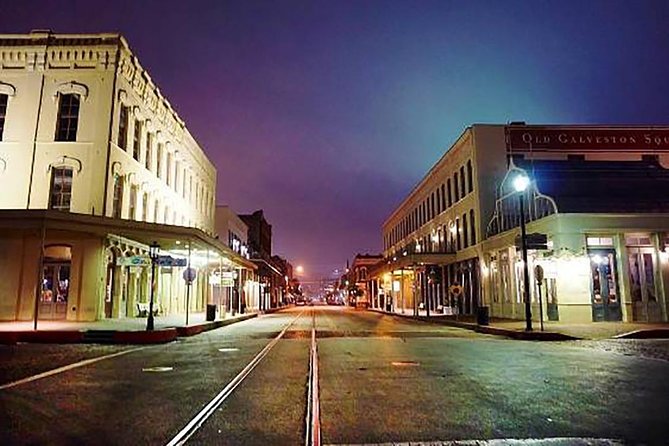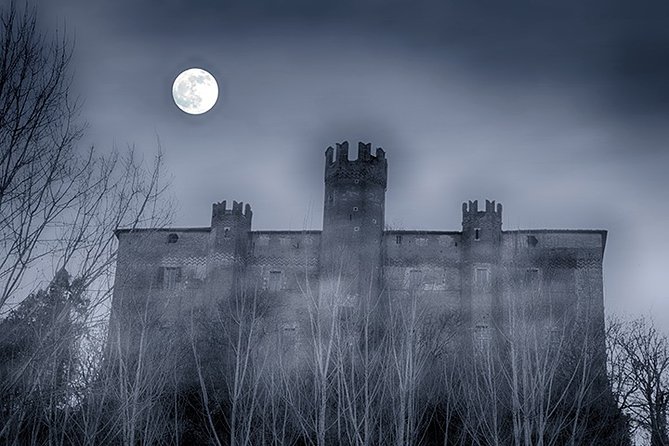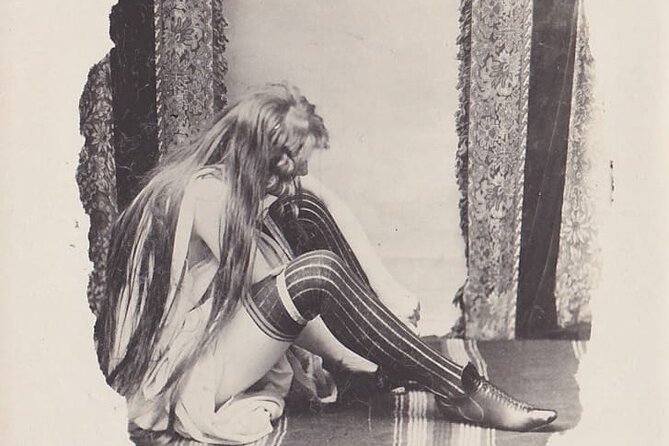Galveston Island’s infamous Red Light District boasts a captivating history dating back to the late 19th century. This strategic Gulf Coast location became a hub for trade, commerce, and vice as the city’s population grew. The district attracted a diverse clientele, from sailors and oil workers to politicians and celebrities. While its seedy reputation is well-known, the area also offered a vibrant cultural scene with theaters, dance halls, and cabarets. Today, the district has undergone a remarkable transformation, with restored architectural landmarks and a focus on community pride and historic preservation. Exploring this unique chapter of Galveston’s past provides a fascinating glimpse into the island’s colorful history.
Key Points

• The tour offers an in-depth exploration of Galveston’s legendary Red Light District, showcasing its rich history, architecture, and transformation over time.
• Participants can learn about the district’s notorious past, including its association with famous figures like the Rat Pack and the influence of organized crime.
• The tour highlights the district’s diverse cultural offerings, such as theaters, dance halls, and cabarets that attracted both locals and visitors.
• Guests will have the opportunity to visit architectural landmarks, like the Grand Opera House and the Tremont Hotel, and learn about restoration efforts in the area.
• The tour meeting point is the Gypsy Joynt Restaurant, and the experience is accessible with service animals allowed and nearby public transportation options.
Historical Context of the Red Light District

Galveston’s Red Light District had a long and storied history, dating back to the late 19th century when the island’s strategic location on the Gulf of Mexico made it a hub for trade, commerce, and vice.
As the city’s population boomed, so too did its red-light district, which became known for its saloons, brothels, and gambling dens.
The district attracted a diverse clientele, from sailors and oil workers to politicians and businessmen, all seeking the thrill and indulgence that the district had to offer.
Over the years, the district was a source of both fascination and controversy, with authorities frequently attempting to crack down on its illicit activities.
Yet its reputation as a hub of vice and debauchery only grew.
You can also read our reviews of more tours and experiences in Galveston.
Prominent Figures in the District

Though the Red Light District was home to a diverse array of characters, several prominent figures stood out in the district’s storied history.
Frank Sinatra, Sammy Davis Jr., and Dean Martin were among the notable celebrities who frequented the area, drawn to its lively atmosphere and reputation for indulgence.
These ‘Rat Pack‘ members were known to frequent the district’s speakeasies, casinos, and brothels, where they could indulge in their passions for music, gambling, and the company of beautiful women.
Their presence in the district added an air of glamour and excitement, and their antics became the stuff of legend among the locals and visitors alike.
Infamous Brothels and Saloons

Alongside the prominent figures who graced the district, the Red Light District also housed a number of infamous brothels and saloons that drew in both locals and visitors alike.
The Oasis Saloon, known for its rowdy clientele and lively entertainment, was a popular watering hole.
The Bon Ton Brothel, with its lavishly decorated rooms and attractive madams, catered to the district’s more affluent patrons.
The Bucket of Blood Saloon, infamous for its violent brawls and seedy underbelly, attracted a rougher crowd.
These establishments, while controversial, played a significant role in shaping the character and reputation of Galveston’s legendary Red Light District during its heyday.
Mob Influence and Criminal Activities

The infamous Red Light District of Galveston also played host to significant mob influence and criminal activities that permeated the area during its heyday.
The district was a hotbed for organized crime, with various underworld figures vying for control of the lucrative vice trade.
Notorious mobsters like Frank Sinatra, Sammy Davis Jr., and Dean Martin were known to frequent the district, using their connections to expand their criminal enterprises.
Brothels, gambling dens, and speakeasies were common sights, and law enforcement struggled to maintain order amidst the rampant lawlessness.
The district’s notoriety extended far beyond Galveston, cementing its reputation as a hub of vice and criminality in the early 20th century.
Entertainment and Cultural Attractions

Aside from its notorious criminal underbelly, Galveston’s Red Light District also offered a diverse array of entertainment and cultural attractions that drew visitors from near and far.
The district was home to numerous theaters, dance halls, and cabarets that showcased a range of performances, from vaudeville acts to burlesque shows. Patrons could catch a live music performance by famous artists like Frank Sinatra, Sammy Davis Jr., and Dean Martin, who’d often make appearances in the district.
The area also boasted a vibrant nightlife, with bars and speakeasies catering to those seeking a lively atmosphere and a taste of the forbidden. Despite its seedy reputation, the Red Light District was a hub of cultural activity that captivated both locals and travelers alike.
Architectural Landmarks and Restoration Efforts
Amidst Galveston’s notorious Red Light District, several architectural landmarks have withstood the test of time, serving as enduring reminders of the area’s vibrant past. The Grand Opera House, constructed in 1894, stands as a testament to the district’s cultural heritage, its grand façade and ornate interiors captivating visitors. Similarly, the Tremont Hotel, once a hub of activity, has been meticulously restored, offering a glimpse into the opulent accommodations that catered to the district’s elite clientele. These architectural gems, along with others, have undergone painstaking preservation efforts, ensuring that the stories and memories of Galveston’s Red Light District live on for generations to come.
| Architectural Landmark | Significance |
|---|---|
| Grand Opera House | Cultural heritage, grand façade, ornate interiors |
| Tremont Hotel | Opulent accommodations, hub of activity, restored |
| Other Landmarks | Enduring reminders of vibrant past, preservation efforts |
Galveston’s Evolution From Red Light District
Over the decades, Galveston’s notorious Red Light District has undergone a remarkable transformation, evolving from a hub of vice and debauchery to a more vibrant, diversified community.
Once home to a thriving sex industry, the area has seen a gradual shift, with old brothels and gambling dens giving way to trendy restaurants, boutiques, and arts venues.
While the district’s colorful past still lingers, the focus has shifted towards restoration, historic preservation, and fostering a sense of community pride.
Today, the former Red Light District offers visitors a unique glimpse into Galveston’s captivating history while showcasing the resilience and adaptability of this coastal city.
Tour Meeting Point and Accessibility Details
The tour meets outside of the Gypsy Joynt Restaurant at 2711 Market Street in Galveston, Texas.
The tour is accessible, with service animals allowed, nearby public transportation options, stroller accessibility, wheelchair-accessible surfaces and transportation, making it suitable for most travelers.
The tour group is limited to a maximum of 20 people, ensuring a personalized experience.
Guests will meet their experienced tour guide at the designated meeting point, ready to embark on a 1.5-hour exploration of Galveston’s captivating Red Light District.
After the tour, the rest of the day is free for visitors to further enjoy the island’s rich history and vibrant culture.
Frequently Asked Questions
Can I Take Photographs During the Tour?
Yes, visitors are generally allowed to take photographs during the tour. However, it’s important to be respectful and avoid disrupting the experience for others. Check with the tour guide for any specific restrictions or guidelines.
Is There a Dress Code for the Tour?
There is no formal dress code for this tour. Visitors are advised to wear comfortable, weather-appropriate clothing and shoes. The tour takes place in public areas, so casual attire is acceptable.
Are Food and Drinks Provided During the Tour?
The tour does not include any food or drinks. Participants are responsible for bringing their own refreshments during the 1.5-hour walking tour. Snacks and beverages are not provided as part of the tour experience.
Can I Join the Tour if I’m Under 18 Years Old?
No, minors under 18 years old are not permitted to join the tour. The tour content and subject matter are intended for adult audiences and may not be suitable for children.
Is the Tour Suitable for Families With Young Children?
The tour may not be suitable for families with young children, as it focuses on the history of the red light district. The content may not be appropriate for children. Parental discretion is advised.
Recap
The Galveston Island Red Light District has undergone a remarkable transformation. Once a hub of vice and seedy activity, the area now focuses on community pride and historic preservation.
Visitors can explore the district’s captivating past through restored architectural landmarks and learn about its diverse cast of characters, from legendary entertainers to notorious mobsters.
The district’s evolution reflects Galveston’s resilience and the city’s commitment to honoring its unique cultural heritage.
More Tours in Galveston
- Pubs and Grub Tour on Galveston Island
- 2 Hours Private Cemeteries of Galveston Walking Tour
- Haunted Harbor Tour 90 Minute Boat Ride at Night Galveston
- Taste of the Strand Food Tour on Galveston Island
- Public Group Historical Carriage Tour of Galveston Review
- Historic & Haunted Pub Crawl Tour in Galveston
More Tour Reviews in Galveston
Not for you? Here's more things to do in Galveston we have recnetly reviewed
- 3 Best Guided Tours In Galveston
- 4 Best Private Car With Driver Services In Galveston
- Bolivar Lighthouse Tour, Open Cockpit Biplane Ride
- Zombie Scavenger Hunt in League City
- Galveston Ghosts of the Gulf Haunted Tour
- Jamaica Beach Jig Scavenger Hunt
- Post Office District Hurricane Hustle Private Scavenger Hunt
- Secret Tales of the Red Light District Tour
- Burial at Sea Celebration of Life Charter
- Galveston Gilded Age Architecture Tour
- Island and Bolivar Tour, Open Cockpit Biplane Ride
- Secret Society Cemetery Walking Tour in Galveston
